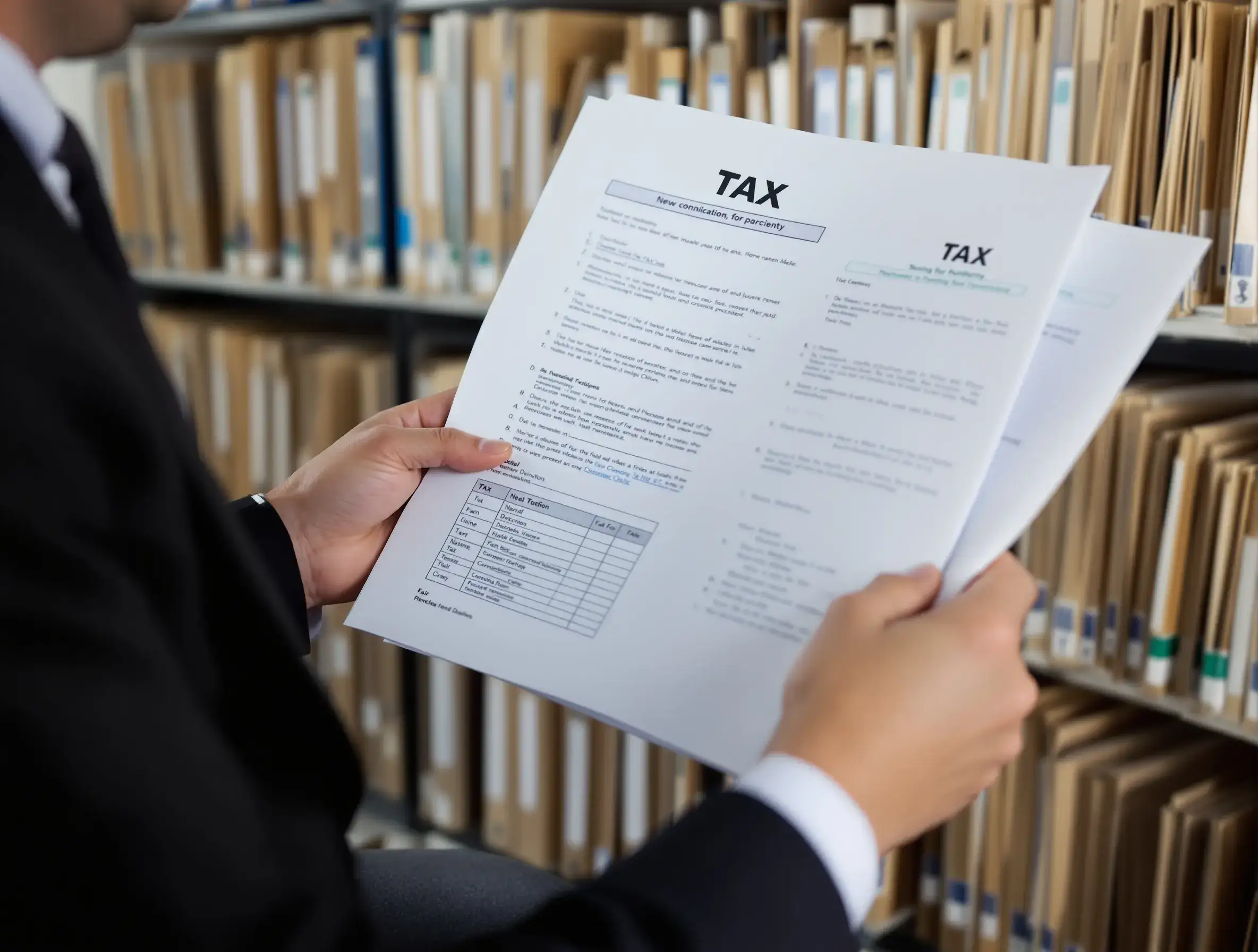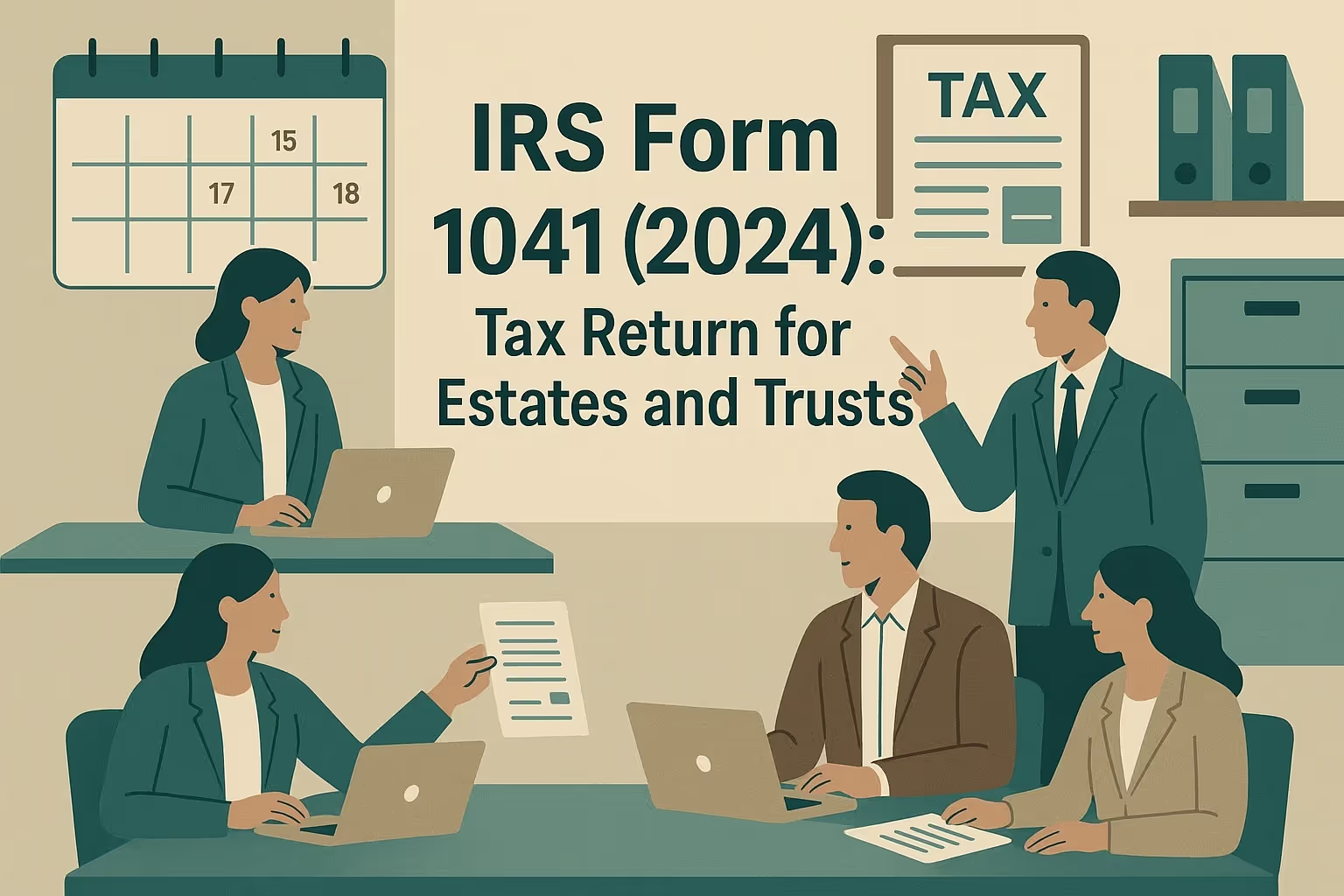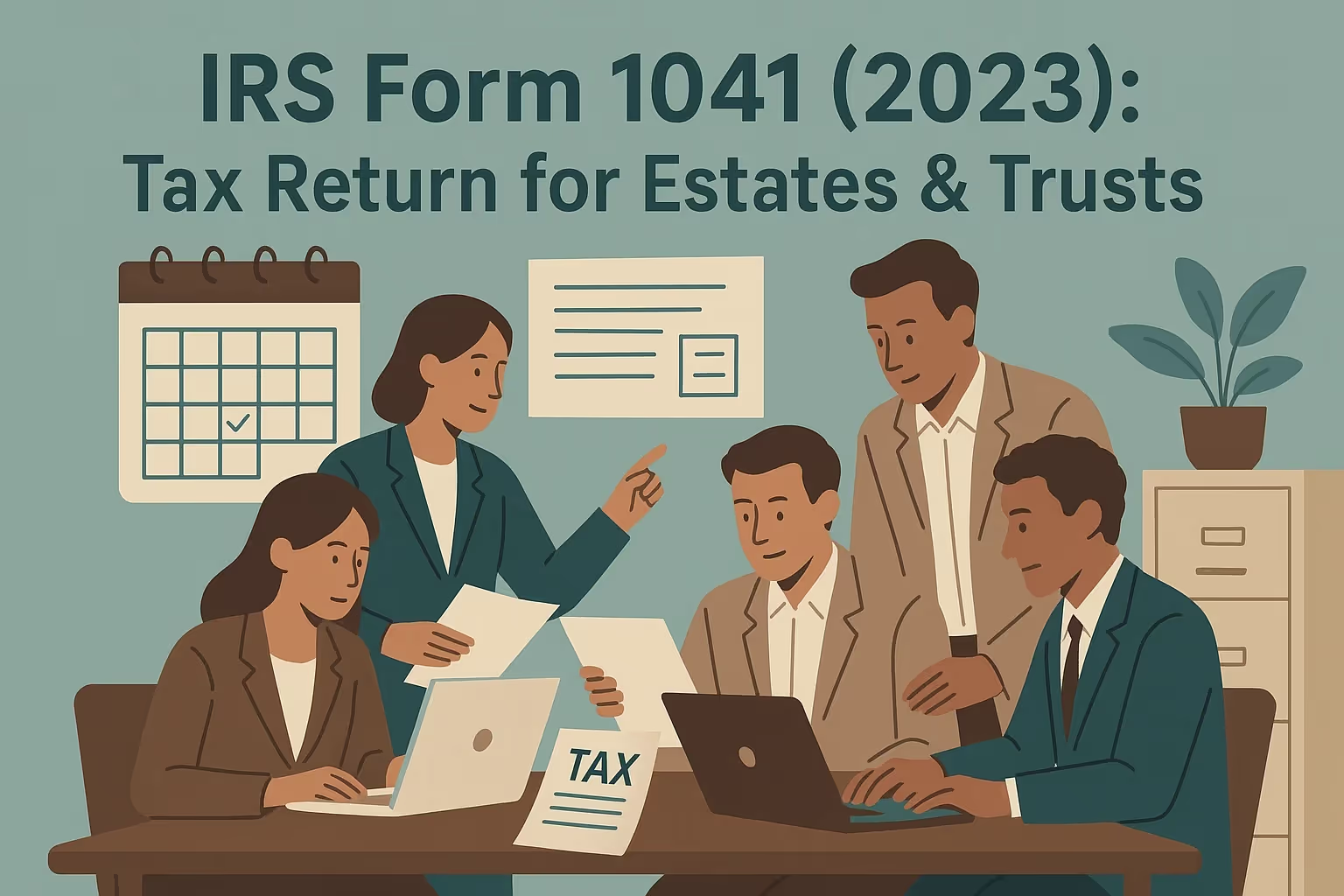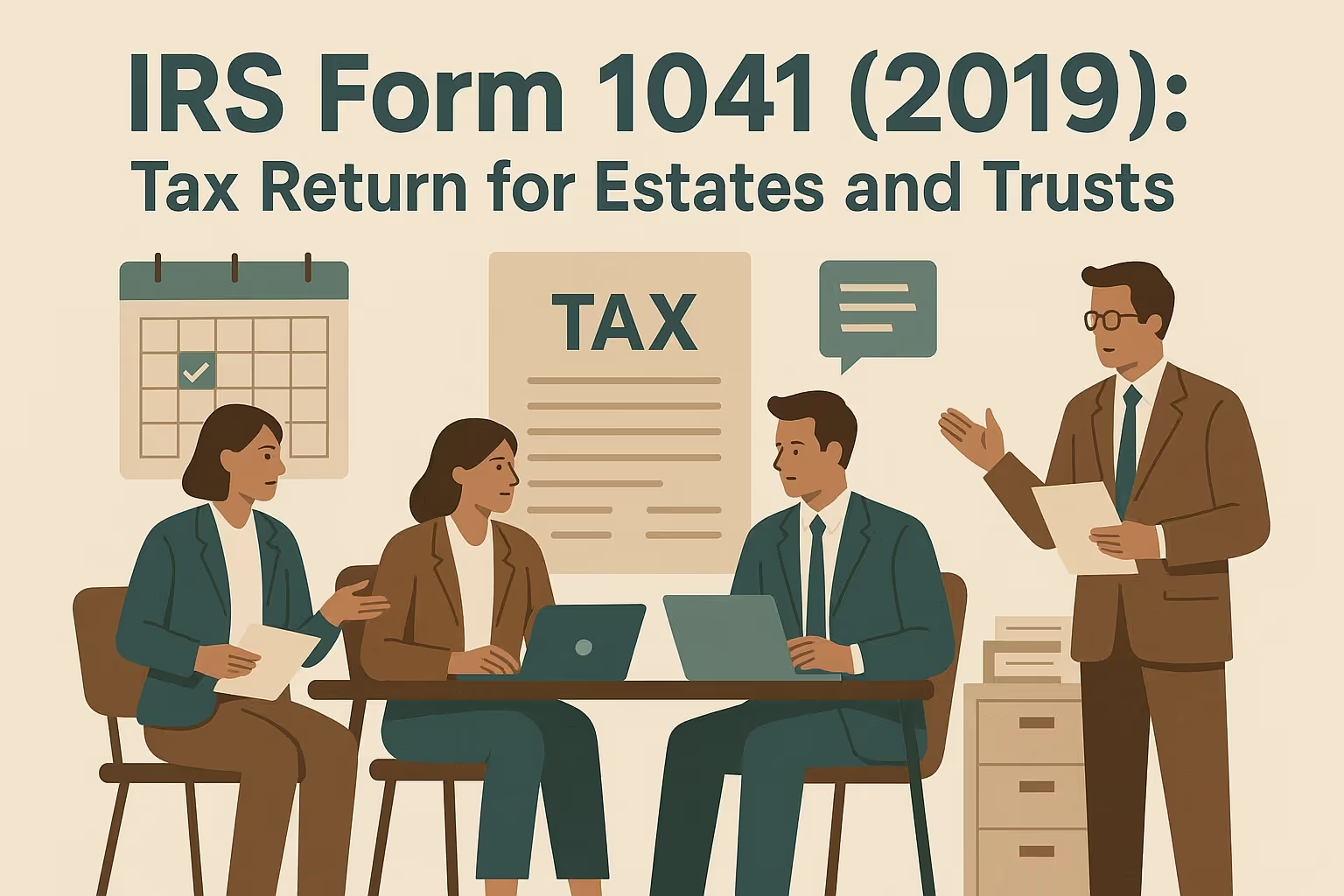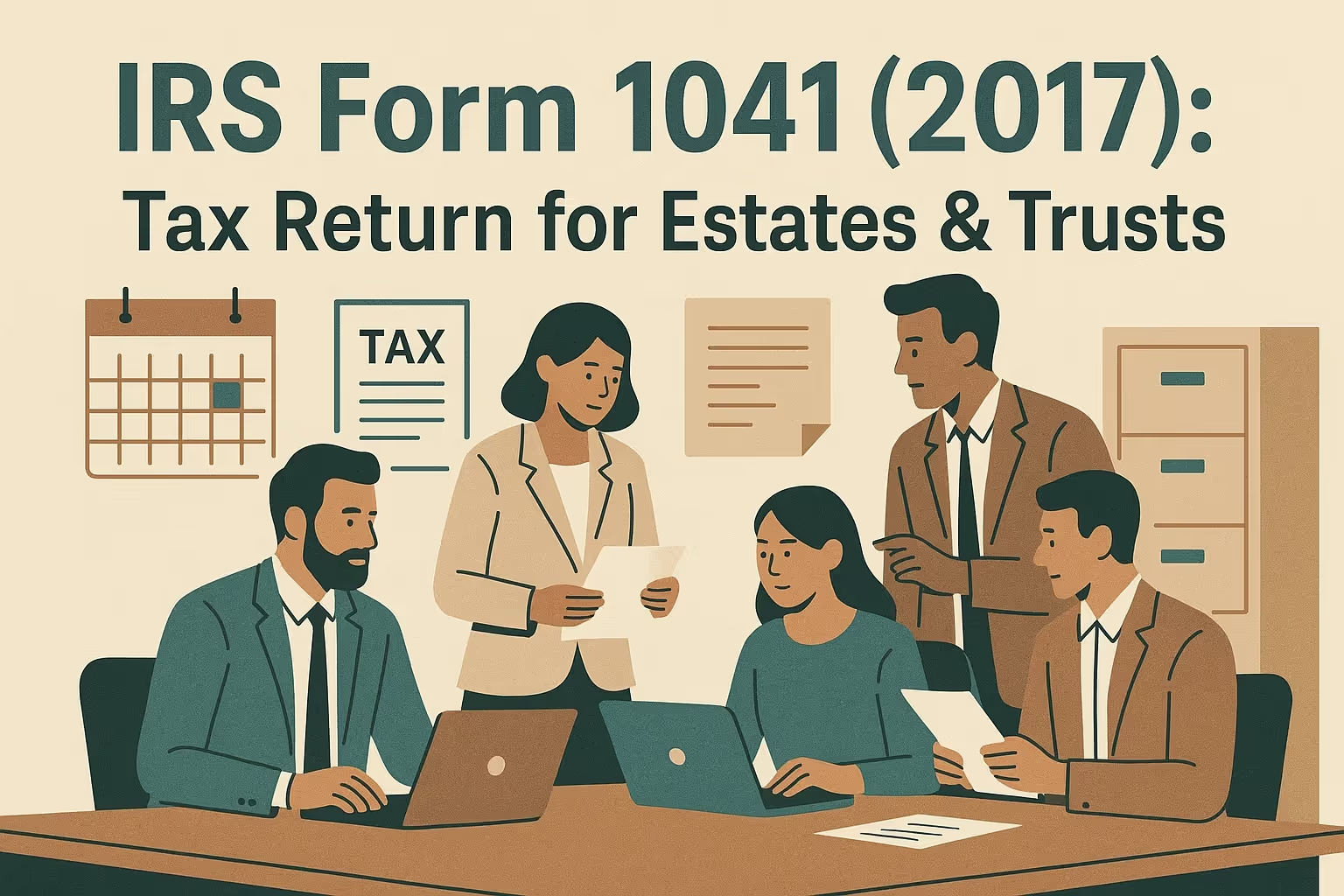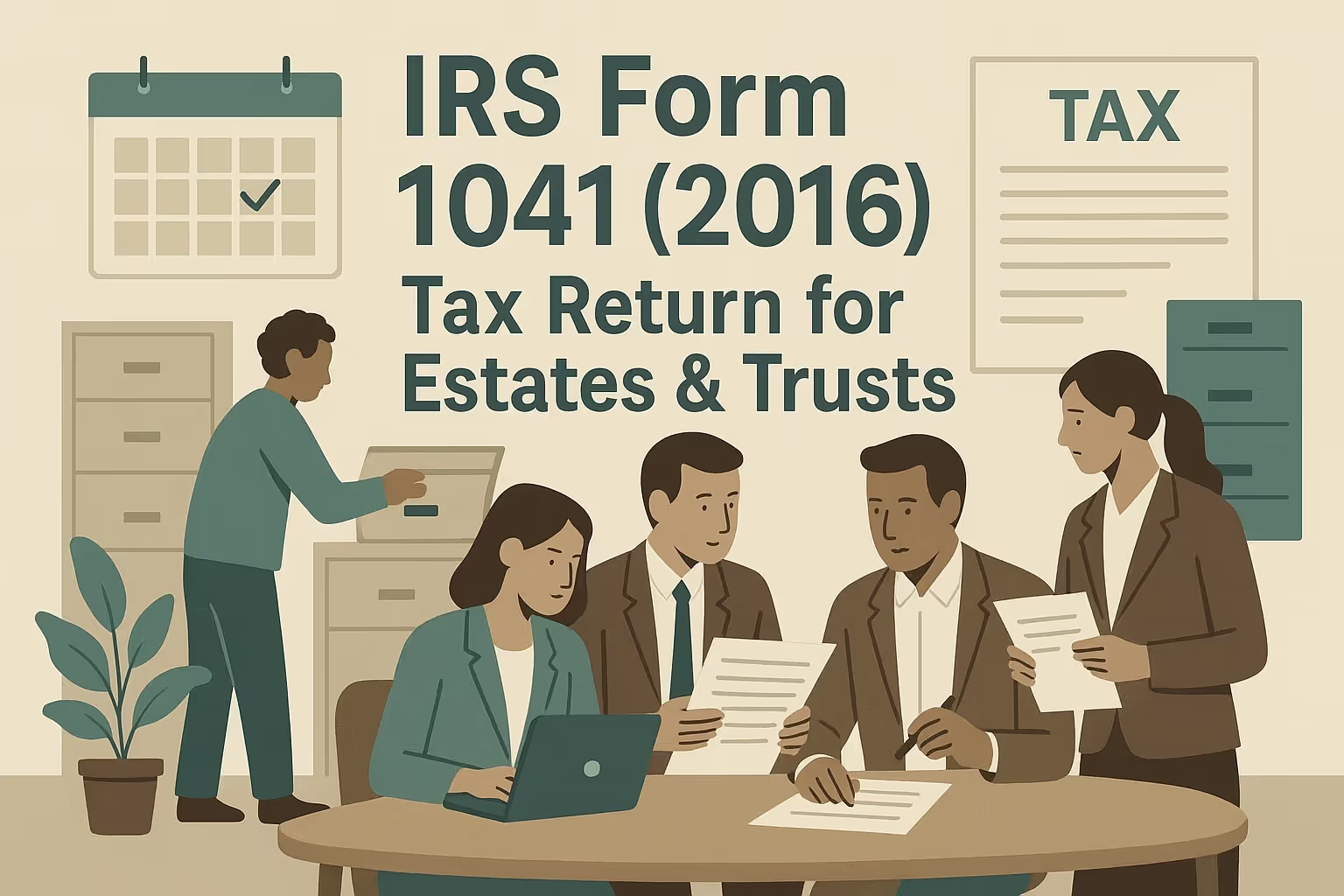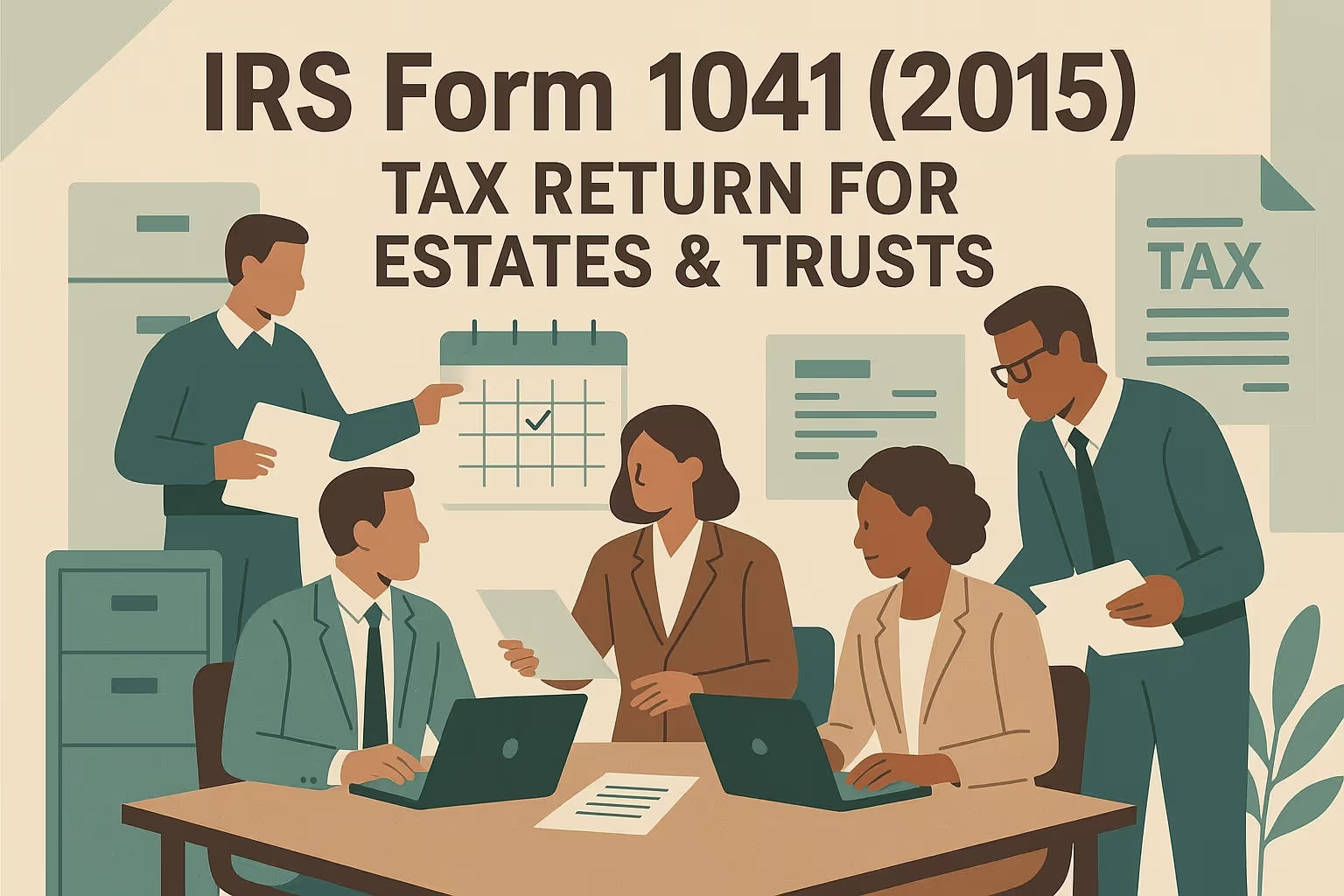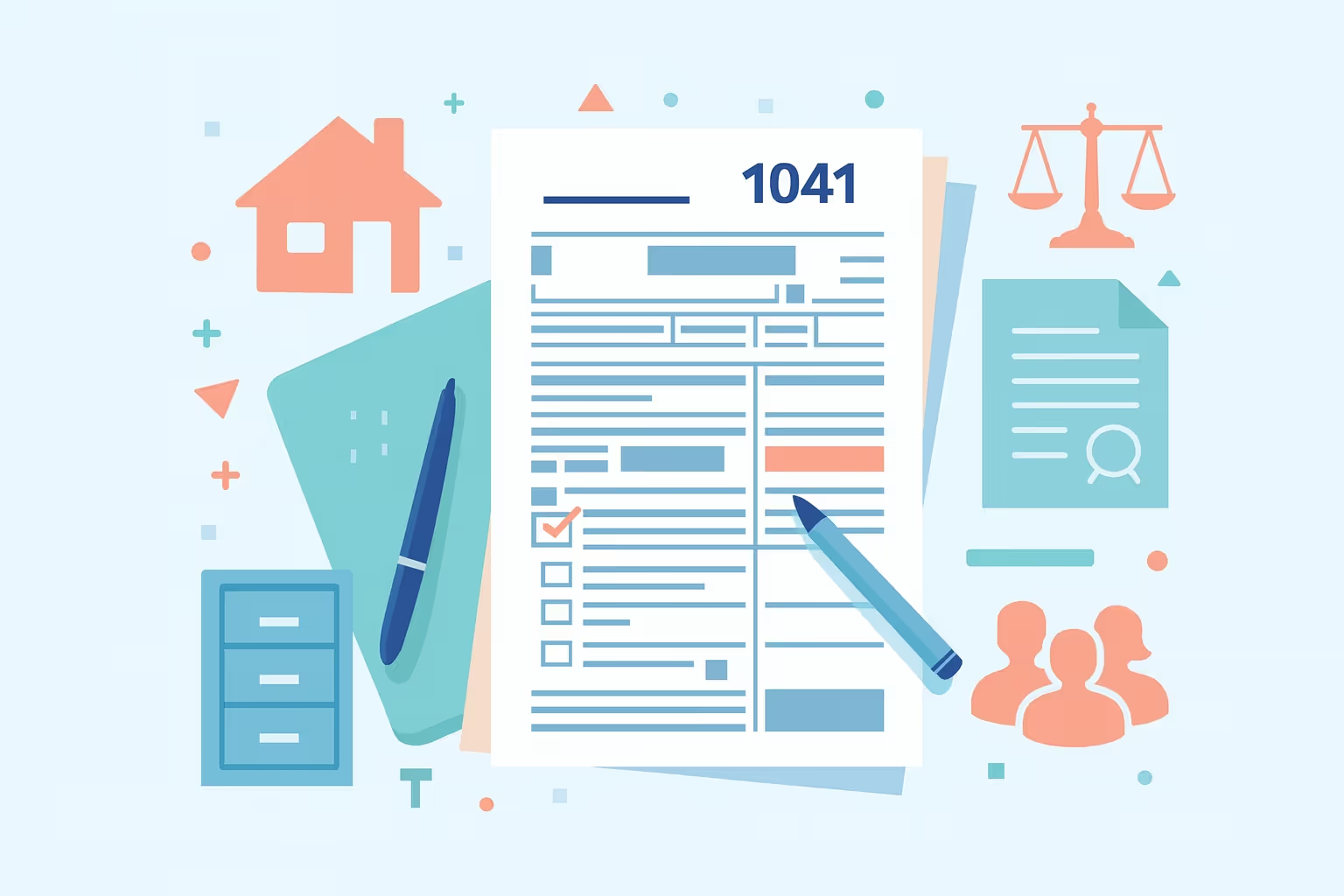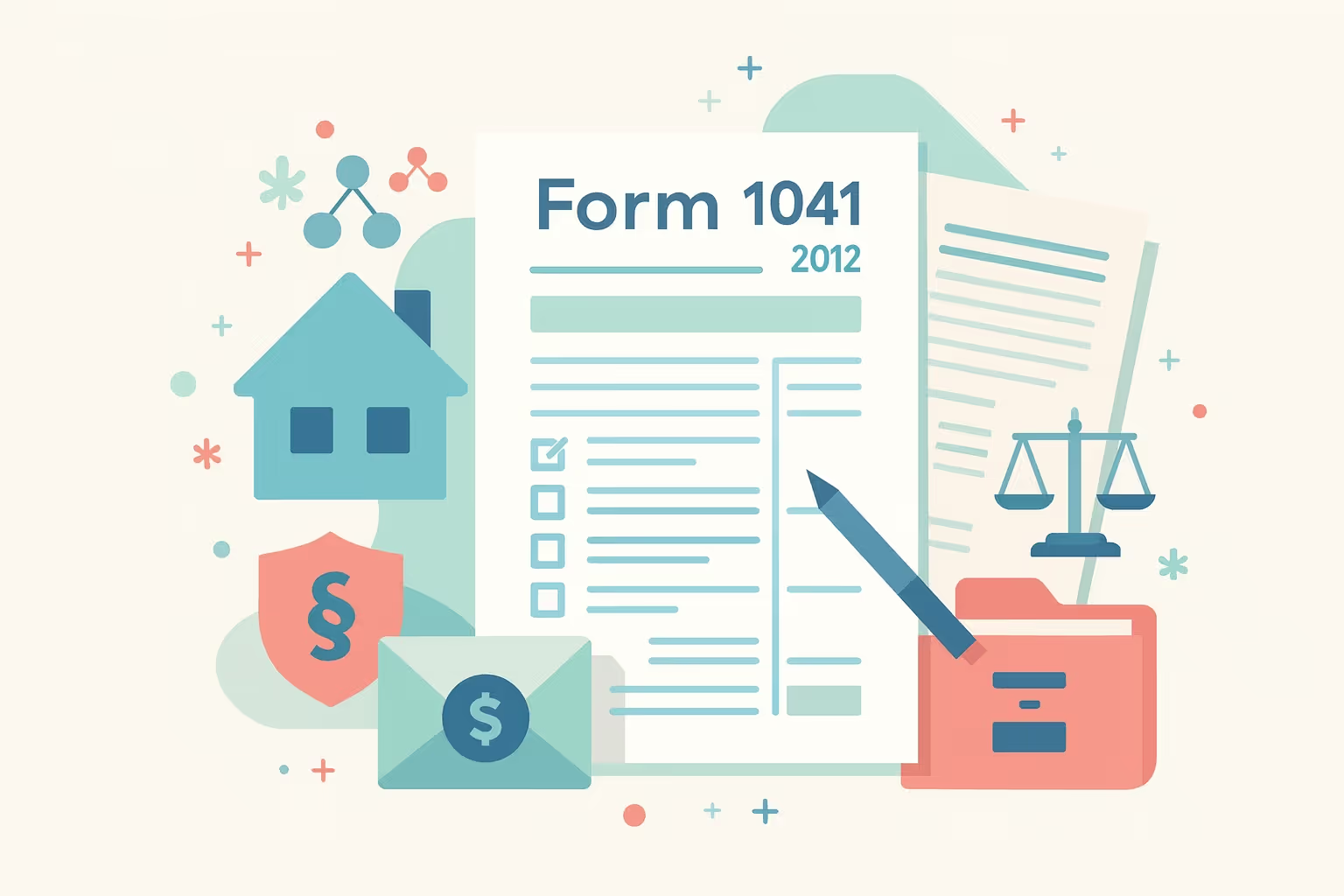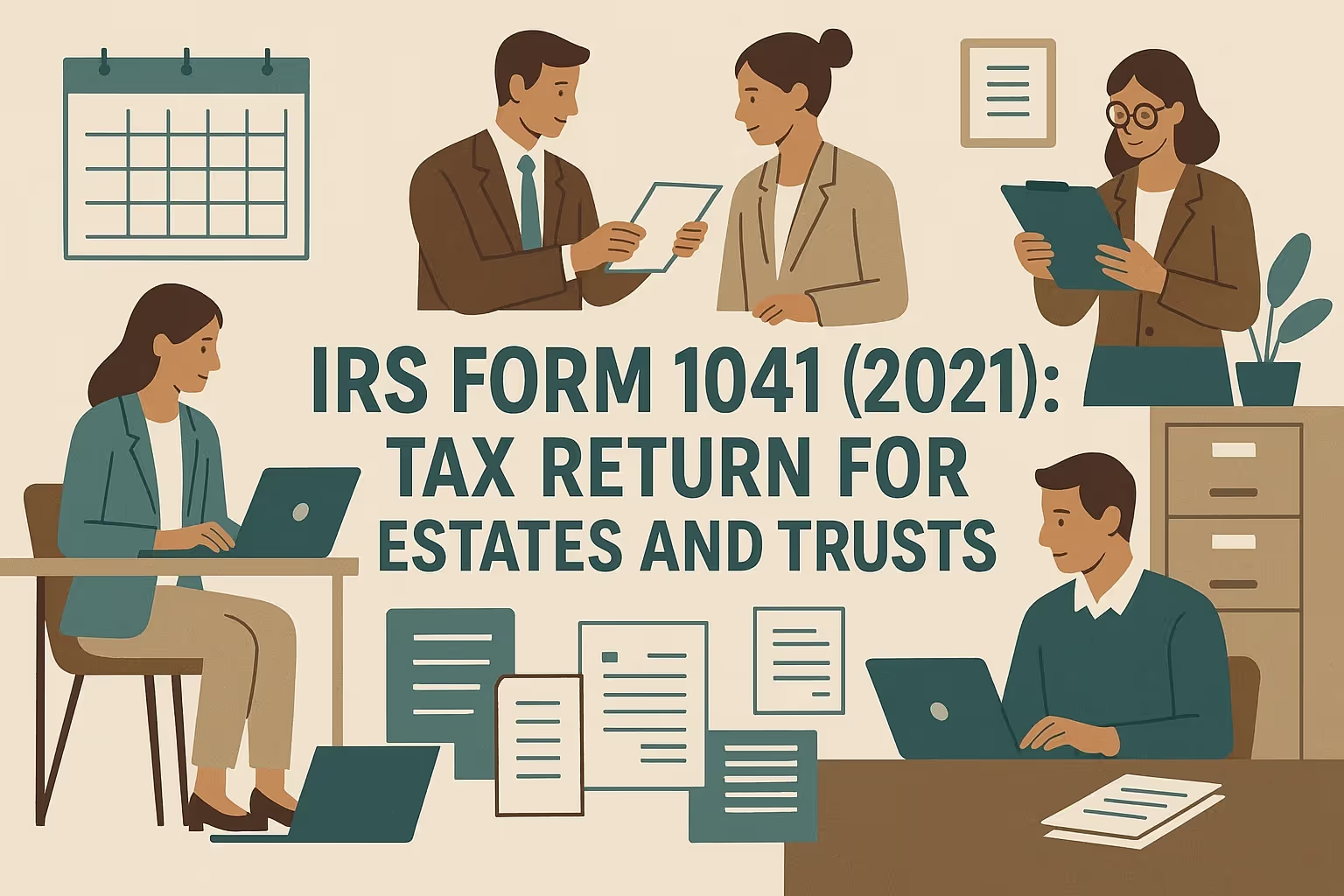
What IRS Form 1041 (2021) Is For
IRS Form 1041 (2021) is the U.S. income tax return used to report the income, deductions, and tax liability of estates and trusts. It allows fiduciaries to report income generated by a deceased person’s estate or a trust that continues to earn from assets or property. This form treats the estate or trust as a separate legal entity for income tax purposes under the Internal Revenue Code.
An estate must file if it has a gross income of $600 or more, or if it has a nonresident alien beneficiary. A trust must file if it has any taxable income, $600 or more in gross revenue, or a nonresident alien beneficiary. Form 1041 also applies to simple trusts, complex trusts, and grantor trusts, depending on the terms of the trust agreement and the trust’s income tax status.
When You’d Use Form 1041 for 2021 (Late or Amended Filing)
A fiduciary would file a late or amended Form 1041 (2021) if the original April 18, 2022, tax year deadline was missed or if the income tax return requires correction. Common reasons include unreported income, incorrect deductions, or issuing corrected Schedule K-1 forms to beneficiaries. Typical corrections include adjusting income generated from investments, deductions, or information that affects tax liability. Refund claims are allowed until April 18, 2025, under the three-year statute of limitations for tax returns.
Key Rules Specific to 2021
- Due Date: The 2021 Form 1041 was due on April 18, 2022, because the deadline was extended for Emancipation Day.
- Capital Gains Thresholds: The tax rate was 0 percent on the first $2,700, 15 percent on the amount from $2,700 to $13,250, and 20 percent on amounts exceeding $13,250.
- Bankruptcy Estate Filing Threshold: A bankruptcy estate was required to file if its gross income exceeded $12,550.
- Qualified Disability Trust Exemption: The exemption amount for a qualified disability trust was set at $4,300 for the 2021 tax year.
- Net Operating Loss: Net operating losses can be carried forward, except that farming losses can be deducted for up to two years.
- Automatic Extension: An automatic filing extension could be obtained by submitting Form 7004 on or before the original due date.
For more resources on filing or understanding prior-year IRS forms, visit our guide on Form 1041 – Income Tax Return for Estates & Trusts.
Step-by-Step (High Level)
- Gather Transcripts: Obtain them from IRS.gov or by calling 800-908-9946 using the taxpayer identification number associated with the estate or trust.
- Get the Form: Download IRS Form 1041 (2021) and the instructions from the IRS prior-year forms page.
- Complete Accurately: Apply 2021 income tax rules, include Schedule K and Schedule K-1, and report all required figures such as income, gains, deductions, and credits.
- Attach Supporting Documents: Include Schedule K-1s, records of state income taxes paid, estimated tax payments, and proof of tax paid during the tax year.
- File: Submit the return electronically through the IRS Modernized e-File system or mail it to the appropriate IRS address for estates and trusts.
- Keep Records: Retain copies of the income tax return, proof of filing, and all records of bank accounts, payments, and distributions to beneficiaries.
Common Mistakes and How to Avoid Them
- Incorrect Income Distribution Deduction: Report beneficiary distributions accurately to ensure proper taxable income allocation.
- Fiscal year versus calendar year confusion: Confirm the correct accounting period to avoid late filing penalties and reporting errors.
- Recordkeeping errors: Keep clear records of income, expenses, and deductions to ensure accurate Schedule K-1s.
- Improper expense deductions: Deduct only fiduciary administrative expenses and exclude personal costs.
- Underpayment of estimated tax: Make timely estimated tax payments to avoid added tax and interest.
- Ignoring state filing obligations: Check state requirements to ensure all needed estate or trust filings are completed.
What Happens After You File
The IRS usually processes electronic tax returns in two to three weeks and paper returns within six to eight weeks. Fiduciaries may receive IRS notices if discrepancies arise or additional information is needed. If taxes are owed, payment can be made using Form 9465, which requests a payment plan. Penalty relief was provided for tax years 2020 and 2021 for certain unpaid balances of $100,000 or less. Individual taxpayers and married couples file their own personal income tax returns separately from estates and trusts.
FAQs
Can I still receive a refund if I file my 2021 Form 1041 late?
Yes, a refund may be claimed if the return is filed within three years of the original due date, which is April 18, 2025, for most 2021 filings. After that date, refund rights expire, so timely filing ensures beneficiaries receive accurate Schedule K-1s.
What are the penalties for filing Form 1041 late if I owe tax?
The failure-to-file penalty is 5 percent of the unpaid tax liability per month, up to a maximum of 25 percent of the total tax liability. If the return is more than 60 days late, the minimum penalty is $510 or the amount of tax due, whichever is smaller. Failure-to-pay penalties accrue at a rate of 0.5 percent monthly, with interest accumulating until the tax is paid.
How do I get tax transcripts for an estate or trust?
Authorized fiduciaries can request IRS transcripts online, by phone, or by submitting Form 4506-T. Transcripts show income reported to the IRS, tax paid, estimated tax payments, and account activity. Reviewing transcripts helps confirm the accuracy of reported income and estimated tax before filing.
Do I need to amend state returns if I file an amended federal Form 1041?
Yes, many states require amended estate tax returns or fiduciary income tax returns when the federal filing changes. Review each state’s tax agency requirements to prevent mismatches in taxation and to avoid penalties.
What if I discovered the estate or trust should have been filed in previous years?
All prior-year returns should be filed immediately. The IRS can assess additional taxes, penalties, and interest for each unfiled income tax return. Filing voluntarily is viewed more favorably and ensures beneficiaries receive the correct K-1 forms.
Can beneficiaries file personal returns before receiving Schedule K-1s?
No, beneficiaries must wait for Schedule K-1 to accurately report their share of the trust’s income and distributions. Filing before receiving K-1s can lead to reporting errors that may necessitate amended personal income tax returns later.
Is there a difference between estate and trust filing requirements?
Yes, estates have a $600 exemption, simple trusts receive $300, and complex trusts receive $100. Estates may use either a fiscal year or a calendar year, while most trusts are required to use a calendar year. Proper classification ensures accurate taxation under the Internal Revenue Code.
For more resources on filing or understanding prior-year IRS forms, visit our Forms Hub.







